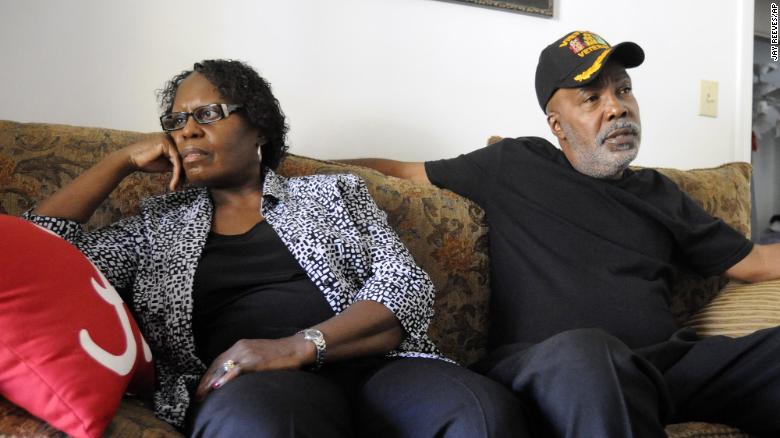After lawyers requested an apology and financial reparations for a survivor of the 1963 Birmingham church bombing, Alabama’s governor has somewhat obliged: offering a formal apology, while proposing further discussions as the woman seeks restitution.
Sarah Collins Rudolph’s lawyers pressed Gov. Kay Ivey earlier this month to offer her a formal apology and restitution for the losses Collins Rudolph suffered as a result of the 16th Street Baptist Church bombing, including the loss of her sister and her vision in one eye.
Wednesday, Ivey responded, calling the bombing on September 15, 1963, “one of the darkest days in Alabama’s history.”
“Thankfully, the violence that unfolded on that fateful Sunday morning — and other incidents during this difficult chapter of American history — resulted in many positive changes that have been beneficial to our national story during the years and decades that followed,” Ivey wrote, going on to condemn the “racist, segregationist” rhetoric used by some state leaders at the time.
She continued, formally apologizing for the incident: “Moreover, there should be no question that Ms. Collins Rudolph and the families of those who perished — including Ms. Collins Rudolph’s sister, Addie Mae, as well as Cynthia Wesley, Carole Robertson, and Carole Denise McNair — suffered an egregious injustice that has yielded pain and suffering over the ensuing decades. For that, they most certainly deserve a sincere, heartfelt apology — an apology that I extend today without hesitation or reservation.”
Ivey did not address the request for restitution directly, but proposed that attorneys for the governor’s office and the state legislature start discussions with Collins Rudolph’s lawyers as soon as possible. Ivey said she would instruct her general counsel to reach out “to continue this very important dialogue.”
In a follow-up statement, the legal team for Collins Rudolph said they were “gratified” by the governor’s acknowledgment of the injustice as well as her apology, and they “look forward to engaging in discussions in the near future with the Governor about compensation, which Ms. Collins Rudolph justly deserves after the loss of her beloved sister and for the pain, suffering and lifetime of missed opportunities resulting from the bombing.”
Collins Rudolph has yet to receive financial help, she has said
On September 15, 1963, members of the Ku Klux Klan bombed the 16th Street Baptist Church in Birmingham, Alabama, killing four Black girls between the ages of 11 and 14.
Though the attack was a major catalyst for the Civil Rights Movement — a year later, President Lyndon B. Johnson signed the Civil Rights Act — Collins Rudolph claimed she was never offered payment, medical care or an official apology.
“Given recent events,” her lawyers wrote in the initial letter to Ivey on September 14, “now is the time for Ms. Collins Rudolph to receive long overdue justice.”
Collins Rudolph was 12 when the attack occurred while she and the other four girls were in the church basement restroom that Sunday morning. The blast sent Rudolph Collins to the hospital for two months. Later, three Klansmen were convicted of the bombing.
Victims’ families and survivors of large-scale acts of terrorism such as the September 11 attacks or the Boston Marathon bombing have received compensation, but victims and descendants of victims of historic acts of racial violence, including the 1921 Tulsa race massacre and the 1963 Birmingham church bombing, haven’t been offered the same.
>>>details

